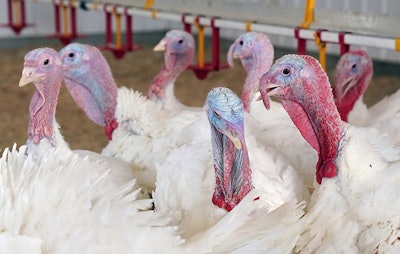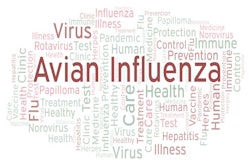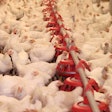
The first confirmed case of highly pathogenic avian influenza to hit a commercial poultry farm in 2022 occurred at a turkey growout facility with four barns and 29,000 turkeys on the site.
However, turkeys in only one of those barns tested positive, a situation Indiana State Veteriarian Bret Marsh says is testament to the company’s “exceptional biosecurity.”
Shortly after the United States Department of Agriculture (USDA) Animal and Plant Health Inspection Service (APHIS) sent out a press release announcing that a commercial turkey flock in Dubois County, Indiana, had been affected by highly pathogenic avian influenza (HPAI), the agency hosted a webinar to provide more information on the detection. Marsh and other Indiana agriculture officials spoke during the webinar, as did officials from APHIS.
According to Marsh, the Indiana Board of Animal Health (BOAH) was notified that this farm had noticed an increase in bird mortality, a decrease in the turkeys’ water consumption and the birds on the premises were “really quiet.”
As of mid-day February 7, samples were collected at the farm, and Marsh said the results of those tests showed that birds in one of the four barns were “clinically affected” with a H5N1 strain of HPAI. These particular turkeys were 130-day-old toms, and they did not have access to the outdoors.
All turkeys on the premises will be depopulated. Marsh said that as of 11 a.m. February 9, two of the four barns had been depopulated through the foaming method, and he expected the remaining two barns to be fully depopulated by the end of the day.
The turkey carcasses will be composted onsite using carbon material.
APHIS and BOAH declined to identify the farm’s operator or the company with which it was affiliated.
Nearby facilities not affected
A 10-kilometer control zone was established, Marsh said, with 17 other commercial poultry farms within that control zone. All but one of those premises were turkey operations, with the other being a one-barn layer facility.
Within 24 hours, all of those properties were tested for HPAI, and all tested negative. There was one facility south of the affected farm that had experienced an increase in mortality.
“The company is determining what the actual cause is,” Marsh said.
Even though none of those 17 other farms has any confirmed cases of HPAI, they are under quarantine, Marsh said.
In addition, there are 37 registered farms that are backyard or hobby poultry growers within the control zone, and testing will be done at those facilities.
To date, everyone has been cooperative with the avian influenza response.
“Our poultry industry is very cooperative,” said Bruce Kettler, director of the Indiana State Department of Agriculture. “Everybody is willing to help. Even though they are competitors in the space, they know the importance for everybody.”
Impact on trade should be limited
Dr. Rosemary Sifford, APHIS’ chief veterinarian, said that the World Organisation for Animal Health (OIE) will be notified of the outbreak, as well as some of the United States’ key trading partners.
The detection of HPAI in Indiana is expected to prompt some trade disruptions, but Sifford said she didn’t believe they will be severe.
“While we do expect that this will have some impact on trade, we do not expect a tremendous impact because we have worked very hard over the past several years to give our trading partners confidence in our eradication and control abilities, particularly with high path avian influenza, and our trading partners have in many cases agreed to recognize our zoning in advance,” Sifford said. “So, we expect to be able to minimize the impact on trade.”
Wild bird surveillance expanded
The APHIS Wildlife Services agency has been conducting a wild bird surveillance program since June 2021 to find the presence of HPAI. During another webinar on January 18, APHIS officials said that such surveillance was being conducted in the Atlantic and Pacific flyways.
However, today, Dr. Julianna Lenoch, APHIS Wildlife Services national coordinator, said because that program has led to the discovery of HPAI in wild birds in North Carolina, South Carolina, Virginia, Maryland and Florida, and HPAI has also been confirmed in the Canadian provinces of Nova Scotia and Newfoundland and Labrador, the agency decided to expand that surveillance to include the Mississippi and Central flyways. Indiana is in the Mississippi flyway.
“At this point, we have 22 of the 24 states working on sampling opportunities, whether it’s hunter harvest or live bird capture,” said Lenoch, who added that teams in Indiana are already “on the ground.”
View our continuing coverage of the global avian influenza situation.


















